Interview
A Legacy of Struggle: In Conversation with Subhashini Ali Part 1
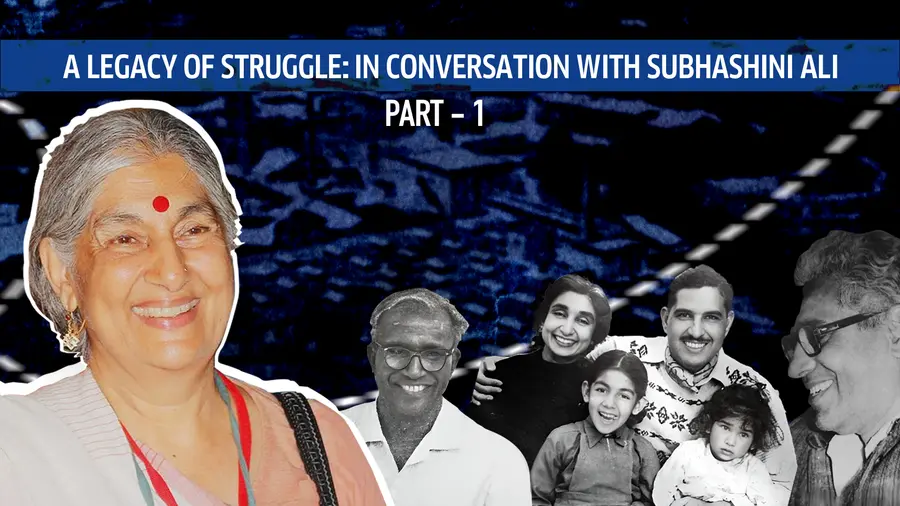
Anusha Paul
Published on Mar 14, 2025, 01:45 PM | 9 min read
Deshabhimani presents a series of interviews with Communist Party of India (Marxist) (CPI(M)) Politburo member Subhashini Ali. In this first part, Subhashini delves into the defining moments that led her to embrace the revolutionary ideals of Marxism and join the CPI(M). Each week, we will explore her journey, shedding light on how her personal experiences and political awakening have shaped her steadfast commitment to the struggle for socialism, equality, and the dismantling of capitalist oppression. This is a powerful account of how Marxist thought continues to fuel the fight for a world rooted in equality and people’s power.
What inspired your decision to join the Communist Party of India (Marxist) (CPI(M)), and how has Captain Lakshmi and Prem Sehgal's political journey shaped your understanding of socialism and communism? In what ways has this bond influenced both your personal and political outlook?
Your relationship with your parents is indeed unique, evolving as you grow older. Certain topics remain undiscussed in youth, only becoming clear with time. After the collapse of the Indian National Army my father, Prem Sahgal, along with many other soldiers, faced the harsh consequences of their fight for India's independence. The British put them on trial for treason in what became known as the Indian National Army Trials or the Red Fort Trials. My parents got married in l946, after my father came out of the Red Fort and my mother from house arrest in Singapore.
At that time, many refugees from Punjab were arriving in India after Partition, and my mother worked in a medical camp for them. She also treated patients in the city, particularly in the predominantly Muslim areas of Kanpur. The atmosphere was tense due to Partition, and many doctors, especially women, were reluctant to work there. But my mother was fearless. Having had experiences in Southeast Asia, nothing deterred her. She regularly visited these areas, building a strong practice among the poor Muslim population, many of whom still remember her today. It’s often said that she treated half of Kanpur’s population.
My mother’s approach was never about grand speeches; it was about her actions. Over time, her nursing home became a place where people from different backgrounds would gather. She didn’t actively try to bridge divides, but her work and her approach to people spoke volumes. My sister and I didn’t see much of her because she was so focused on her practice, but she always told us that if we ever got sick, there would be people to look after us, whereas the people she treated had no one. At the time, we resented her dedication, but we came to understand her way of thinking later.
I went to boarding school in Dehradun when I was eight, so I didn’t grow up having long discussions with my mother about politics. She was always busy, and our conversations were mostly mundane. Later, I learned that my grandmother, Ammu Swaminathan, was a Congress leader, but my mother was drawn to socialist ideas and the militant struggle. For instance, when Bhagat Singh was jailed, she organized a fundraising campaign in Madras and raised 35,000 rupees—an enormous sum at the time for the legal battle. After his execution, there was widespread mobilization in Madras, and my mother participated in that as well.
My father had his own experiences. Growing up in Punjab, he joined the Hindustan Socialist Republican Army (HSRA) at the age of 12. He used to pass messages for the group. His father was a prominent lawyer, and the British judiciary advised him to let his son study. “After that, he can fight us,” they told my grandfather. After Bhagat Singh’s execution and the disillusionment with the talk about Gandhi’s lack of action to save him, my father returned to studying. He always believed that without an armed force, India couldn’t free itself from British rule because the British Indian Army and the police were so powerful. When the British Indian Army surrendered to the Japanese, the opportunity arose to form the Indian National Army (INA). My father was one of those who motivated many to join, particularly Punjabi soldiers.
When my parents met in Singapore, my father was searching for medical supplies for wounded soldiers. My mother's classmate was a doctor who joined the INA with my father and he helped him to meet my mother. At the time, she was working in a government hospital treating Japanese war wounded. She provided medical supplies to wounded soldiers and would regularly steal bandages and medical equipment to help the wounded Indian soldiers. She strongly supported the INA and, although she couldn’t do much at the time, she backed their cause. It wasn’t something we talked about much in our household, but I later learned that she had been present to welcome Netaji Subhas Chandra Bose when he arrived. She was the captain of the Rani of Jhansi Regiment.
In the 1960s, when I went to college at Madras Women’s Christian College, I became involved in a student protest against an anti-Hindi agitation. My house was near Pachaiyappa College, the center of the protests, and I got involved in the agitation, learning a lot about mass politics. During that time I met a friend, Vasanthakumari, daughter of DMK leader Asaithambi, and she was involved in the anti-Brahminism movement. She introduced me to Periyar’s ideas, which was an eye-opening experience for me.
After that, I received a scholarship to study in America. I attended Swarthmore College in Pennsylvania from 1967 to 1969, during the height of the global student movement in France, England, America and across the world against the Vietnam war. Swarthmore was a very anti-war college, and the atmosphere was charged with activism. There were sit-in protests at the University of Pennsylvania against the eviction of Black people around the university. It was there that connections were made—realizing that the people who ran the university were the same ones who owned big businesses and controlled everything. They wanted to evict Black residents under the pretext of university expansion, claiming the houses were substandard, but in reality, they were making a lot of money by selling the properties to the university at higher prices. I met a group of people who called themselves Marxists, and these connections helped me understand how the ruling class functions. I found it fascinating and joined the sit-ins. After finishing college, I was admitted to prestigious universities for postgraduate studies, but I chose not to go. Instead, I returned to India, looking for a communist party to join.
I had never met an Indian communist before. By that time, there were three Indian communist parties. When I returned, I started meeting people, and it was amusing when I told my father I wanted to meet some communists in Kanpur. He invited all the trade union leaders from his factory, where he was the manager. Because of his background as a freedom fighter, he had a different relationship with them. He wasn’t anti-labour, but he was part of the management. I was fortunate that I met CPIM district party secretary of Kanpur, Ram Asrey, who was a wonderful comrade. He translated Mao’s works into Hindi and was a brilliant writer and orator. He came from a poor family, the son of a postman, and was deeply committed to the party. His approach was inspiring, and I was lucky to have him. That’s why I stayed in Kanpur and joined the trade union instead of moving to Delhi and pursuing a middle-class academic life.
In 1969, after the CPI(M) was reorganized following the release of comrades from jail, Comrade EMS, the party secretary, visited Kanpur for three days. The local comrades didn’t know where he would stay, as they had no access to such arrangements. Comrade Ram Asrey asked my parents, who, despite their reservations about communists, held EMS in high regard as a freedom fighter and mother being a Malayali and all, they agreed to host him.
During his stay, we had many conversations, and he suggested that I join the party formally. I had typical middle-class concerns about losing my freedom, and he jokingly replied, “You’re not getting married, you can always leave.” He filled out my membership form, and that’s how I joined the party in 1969, at the age of 21.
It wasn’t that my mother directly influenced me to join the communist party or embrace socialism, but certainly, my parents’ contributions to the freedom movement and their democratic attitudes made it easier for me. I didn’t have to fight my parents or anyone else; they never questioned my choices.
Later, as my trade union work increased, more workers began approaching my mother for help. During strikes, she would assist them and even joined protests at the factory gates, influenced by Comrade Ram Asrey. In 1971, during the Bangladesh Liberation War, many refugees came to India. Comrade Jyoti Basu called for doctors and medical professionals to help, and my mother went to the refugee camps. She was in charge of one medical camp and was deeply impressed by the young CPI(M) volunteers working there. This experience further solidified her commitment to the party. Before joining the party, she wanted to clarify her stance on Subhas Chandra Bose. She told Jyoti Basu that she couldn’t accept the party’s earlier characterization of Bose as a traitor. While they could have differences about his methods, questioning his patriotism was unacceptable. Jyoti Basu agreed, publicly stating that it had been a mistake, and my mother joined the party in 1971 at the age of 57—a remarkable record!
We came to the party at different times, but I believe we influenced each other in joining. My mother’s unwavering dedication to the poor and her fearless spirit, combined with my father’s revolutionary background, created an environment where my decision to join the communist movement felt natural and unforced.



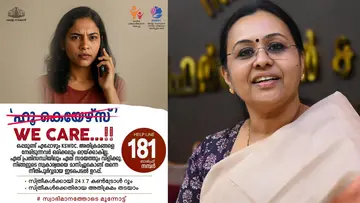
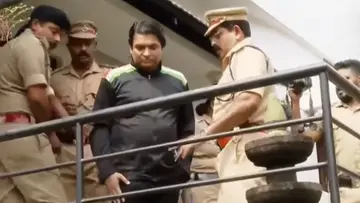
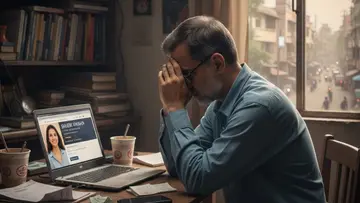
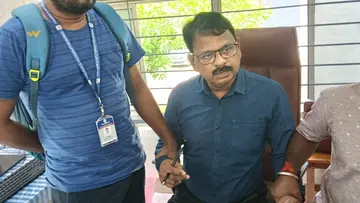
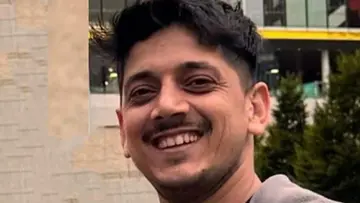
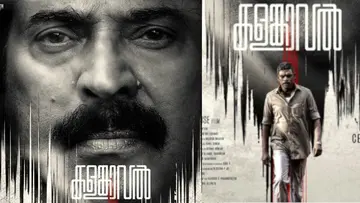

0 comments